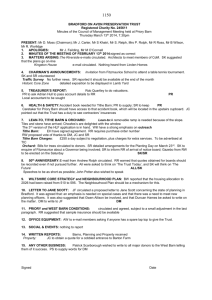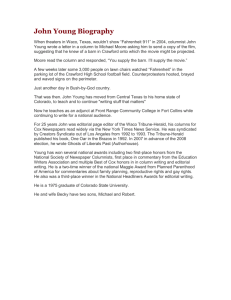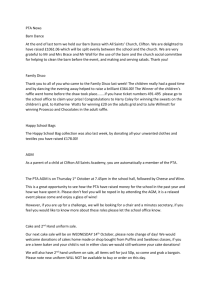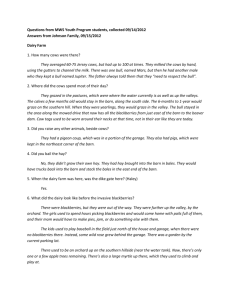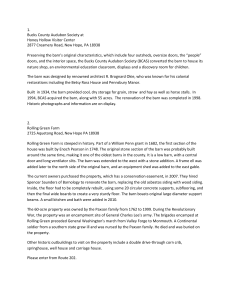BARN Sub-Projects
advertisement
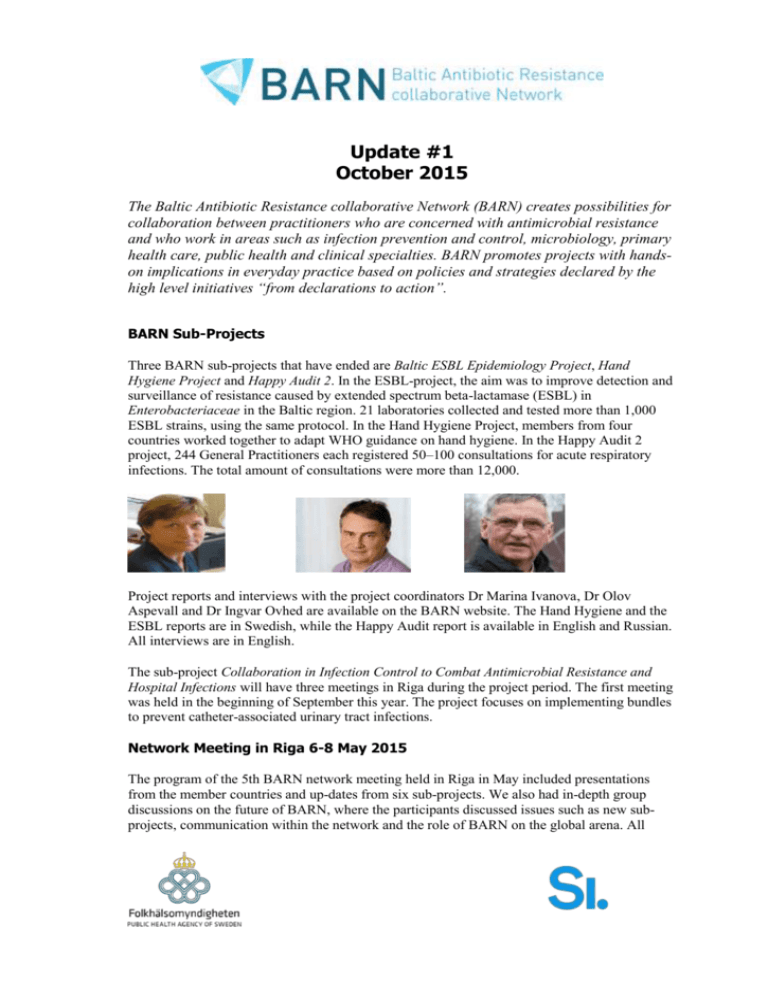
Update #1 October 2015 The Baltic Antibiotic Resistance collaborative Network (BARN) creates possibilities for collaboration between practitioners who are concerned with antimicrobial resistance and who work in areas such as infection prevention and control, microbiology, primary health care, public health and clinical specialties. BARN promotes projects with handson implications in everyday practice based on policies and strategies declared by the high level initiatives “from declarations to action”. BARN Sub-Projects Three BARN sub-projects that have ended are Baltic ESBL Epidemiology Project, Hand Hygiene Project and Happy Audit 2. In the ESBL-project, the aim was to improve detection and surveillance of resistance caused by extended spectrum beta-lactamase (ESBL) in Enterobacteriaceae in the Baltic region. 21 laboratories collected and tested more than 1,000 ESBL strains, using the same protocol. In the Hand Hygiene Project, members from four countries worked together to adapt WHO guidance on hand hygiene. In the Happy Audit 2 project, 244 General Practitioners each registered 50–100 consultations for acute respiratory infections. The total amount of consultations were more than 12,000. Project reports and interviews with the project coordinators Dr Marina Ivanova, Dr Olov Aspevall and Dr Ingvar Ovhed are available on the BARN website. The Hand Hygiene and the ESBL reports are in Swedish, while the Happy Audit report is available in English and Russian. All interviews are in English. The sub-project Collaboration in Infection Control to Combat Antimicrobial Resistance and Hospital Infections will have three meetings in Riga during the project period. The first meeting was held in the beginning of September this year. The project focuses on implementing bundles to prevent catheter-associated urinary tract infections. Network Meeting in Riga 6-8 May 2015 The program of the 5th BARN network meeting held in Riga in May included presentations from the member countries and up-dates from six sub-projects. We also had in-depth group discussions on the future of BARN, where the participants discussed issues such as new subprojects, communication within the network and the role of BARN on the global arena. All presentations and other material from the meeting is available on the BARN members only website. Some of the participants at the network meeting in Riga, May 2015. During the meeting, we conducted a short survey on the BARN network among the participants. The results of the survey showed that members think that the network focuses on relevant issues and that it is useful for their work. The participants were also very positive to working together in sub-projects. Here is an example of one of questions we asked (Grades 1 – 5 where 5 is the best grade; n=26). BARN is useful for my work 18 16 14 12 10 8 6 4 2 0 1 2 3 4 Weekly scan on news and publications related to ABR 5 Each week, the Public Health Agency of Sweden compiles an email in English with the latest news items and scientific publications related to antibiotic resistance and infection control. Below you may see a snapshot of what this compilation looks like. Please contact BARN if you wish to subscribe to this email. A snapshot of the weekly ABR-scan from the Public Health Agency of Sweden About BARN BARN was founded in 2010 as a joint initiative by national and regional actors under the leadership of the Swedish Ministry of Social Affairs. Funding is currently granted until July 2016 by the Swedish government through the Swedish Institute (SI). A great part of the work is done as in kind and by voluntary support. Web: www.folkhalsomyndigheten.se/barn Contact: barn@folkhalsomyndigheten.se

